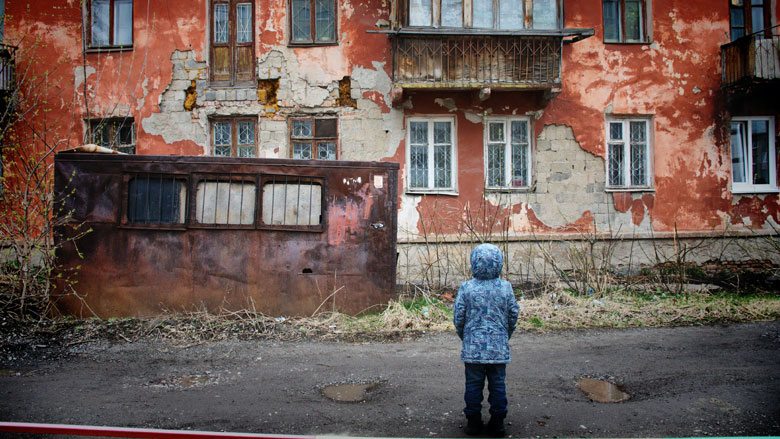Leysan* is 18 years old and lives with her family in a suburb of Kazan. She is the eldest of five children, two of whom have learning disabilities and are home-schooled. Leysan’s mother works part-time on a dairy farm, and her stepdad is a tractor driver.
“I graduated from secondary school last year, but did not go to university because my mother needs my help at home,” says Leysan. “If I had three wishes, I would ask to have enough food for my family every day; I would register my twin sisters in music classes, which they dream about; and I would try to get admitted to medical school. I dream of becoming a nurse, or perhaps a doctor one day!”
In terms of income, Leysan’s family is poor. Indeed, about thirteen percent of Russia’s population lives in poverty today.
In 2018, Russia set itself the ambitious goal of cutting the level of poverty in half by 2024. In addition to essential anti-poverty drivers such as income growth and improvements in human capital, targeted social assistance is the policy instrument most central to pulling people out of poverty. Strong safety nets help prevent poverty, support households in managing difficult life circumstances, and ultimately provide a foundation for more efficient and equitable economic outcomes.
A recent partnership between the World Bank and the Republic of Tatarstan aims to improve the region’s safety net system to better serve the needs of vulnerable people, while actively engaging them in the labor market. Moreover, the model designed for Tatarstan is based on good international design principles that could be easily replicated in other regions of the Russian Federation and even outside the country.
The Tatarstan Social Assistance System Development Project was structured around Russia’s flagship Social Contract Program. The World Bank and the Ministry of Labor and Social Protection of Tatarstan jointly developed key design and implementation improvements to expand the program and boost its effectiveness in the region starting in 2020.
To launch the project, the Bank and the Ministry conducted an in-depth evaluation to assess any weaknesses in the current system. The study consisted of a quantitative analysis of the Survey on Incomes and the Participation in Social Programs (the largest household survey in Russia and the main source of official poverty data), as well as qualitative interviews with representatives of vulnerable populations and front-line social workers.
These findings, combined with case studies from middle- to high-income countries, informed the following policy recommendations:
- A means-tested cash benefit, based on income and assets, adequate to relieve poverty and aligned with work incentives for the able bodied.
- The activation of employment support services designed to minimize dependency by encouraging beneficiaries to improve their earnings potential through labor.
- Personalized social inclusion services tailored to address each vulnerable family’s specific needs.

